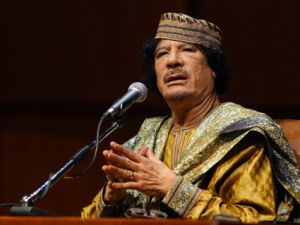We may need someone to monitor Monitor

(Image from Mother Jones)
The Boston Globe piece by Farah Stockman starts out this way:
It reads like Libyan government propaganda, extolling the importance of Moammar Khadafy, his theories on democracy, and his “core ideas on individual freedom.’’
The Mother Jones piece by David Corn and Siddhartha Mahanta is even more blistering.
In February 2007 Harvard professor Joseph Nye Jr., who developed the concept of “soft power,” visited Libya and sipped tea for three hours with Muammar Qaddafi. Months later, he penned an elegant description of the chat for The New Republic, reporting that Qaddafi had been interested in discussing “direct democracy.” Nye noted that “there is no doubt that” the Libyan autocrat “acts differently on the world stage today than he did in decades past. And the fact that he took so much time to discuss ideas—including soft power—with a visiting professor suggests that he is actively seeking a new strategy.” The article struck a hopeful tone: that there was a new Qaddafi. It also noted that Nye had gone to Libya “at the invitation of the Monitor Group, a consulting company that is helping Libya open itself to the global economy.”
Nye did not disclose all. He had actually traveled to Tripoli as a paid consultant of the Monitor Group (a relationship he disclosed in an email to Mother Jones), and the firm was working under a $3 million-per-year contract with Libya.
The usual glib way to summarize this in a blog is “Ouch.” This is much more in the Mother Jones piece that makes you wince. It’s not ouchy; it is more like climbing out of the bowels of the Deer Island plant and then looking back in.

